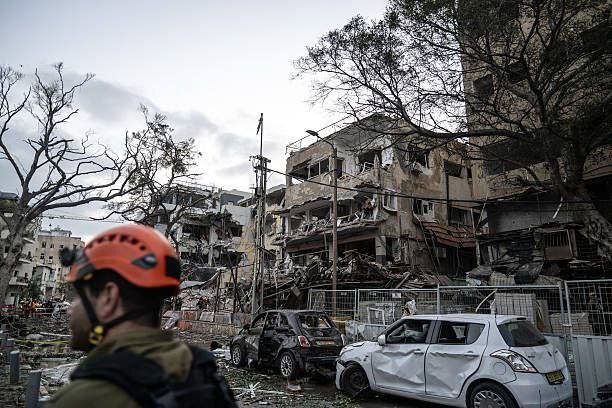How did Israel fall into its own self-developed trap?

SOUTH LEBANON — Noam Chomsky has long warned against the seduction of power when exercised without political rationality and against imperialist narratives that obscure facts behind flimsy pretexts such as “deterrence” and “self-defense.”
This is exactly what Israel fell into, and the euphoria surrounding Iran’s lightning strike last Friday morning will cost it a heavy price.
The Israeli enemy, and Washington behind it, delude themselves into believing that they can impose a balance of power to their imperial advantage through a surprise attack on a regional state the size of Iran.
However, the reality is complex and open to unexpected surprises, revealed in succession by the creative and innovative Persian carpet weaver.
Indeed, Tehran has exposed the enemy, which flees from one predicament to another after its failures in Gaza, the West Bank, Lebanon, and Yemen; the battle with Iran is more dangerous and complex!
Since day one, the Hebrew and pro–Israel Arab media have been demonstrating the aggression against Iran as a restoration of the Israeli enemy’s honor following the humiliating slap it received on October 7, 2023.
Nevertheless, what happened and is happening was not and will not be a victory, but rather a slide into greater danger.
The difference between Iranian strategic patience and Zionist-American megalomania is that the former approach prioritizes the aftermath, while the latter delights in a fleeting moment followed by a humiliation that will go down in history for a functional entity that has tried for decades to market that the Islamic Republic of Iran can be dismantled with a single strike!
This is precisely what Chomsky warns against when he speaks of the “Orientalist flattening” of the Western mind toward its opponents.
Iran is neither a hybrid nor a composite state, but rather a civilization built on intertwined cultural, philosophical, military, ideological, and economic foundations, and, most importantly, it has a long-standing memory of war.
The euphoria of victory quickly faded under the weight of heroic Iranian operations and heavy losses on the Israeli home front. Experience has proven once again that wars are decided by their endings over time.
Yossi Melman, an intelligence analyst for Haaretz, revealed that the Israeli occupation entity is currently paying a heavy price as a result of Iranian missile attacks and the unprecedented destruction of infrastructure.
Citing the experiences of the wars in Vietnam, Ukraine, Gaza, and Lebanon, Melman asserted, “a regime, ruled by a deeply rooted religious establishment—based on a long history spanning thousands of years—has not collapsed under the blows, while the patience of the Israeli home front cannot be relied upon for long.”
He also cited the experience of the 1980-88 Iran-Iraq war, noting that Iran held out for eight years, unifying its ranks despite the bombing and chemical weapons, and even establishing a solid missile deterrent doctrine.
The Haaretz intelligence analyst warned that Israel could slide into a war of attrition that it might be unable to win, and warned against causing a global oil crisis that could require the intervention of major powers like China.
Melman wrote on X: “The euphoria did not last long. On Friday, I asked whether it was necessary to wage war, especially against the Iranians. Historically, the Shiites are willing to endure suffering, as they demonstrated during the eight-year war of attrition with Iraq. I also remembered their willingness to sacrifice. I advise everyone to limit our losses by pushing US President Donald Trump to stop this madness with a reasonable agreement. Otherwise, we will be forced to beg for a ceasefire, and Iran will refuse.”
Michael Milstein, head of the Forum for Palestinian Studies at the Dayan Center at Tel Aviv University, stressed the need to avoid bombastic slogans such as “destroying the nuclear program,” as they could lead to a prolonged war of attrition with a regional power whose importance is difficult to underestimate.
The Israeli academic affirmed that Iran will not be content with holding out but will seek to create an effective balance while the Israeli home front has been increasingly eroded since October 7, 2023.
In the same context, Nachman Shai, dean of the Hebrew Union College at the Jewish Leadership Institute in Jerusalem, wrote in Maariv, warning of the fragility and fragmentation of the Israeli colonial society.
In his opinion, Israel needs to restore its internal unity so that external “achievements” do not become a prelude to internal collapse.
It appears, therefore, that Israel has not made the basic calculation that Chomsky repeatedly emphasized: When you base your decisions on the illusion of technological superiority and ignore the historical, political, and cultural complexity of your opponent, you create your own disaster.
Iran may prolong the confrontation on several levels, including closing the Strait of Hormuz, as if the aggression, which Netanyahu intended as a way out of the Gaza crisis, will turn into a more severe and harsh curse.
In essence, the claim that Israel can restore the regional order through force is sheer stupidity; Veteran Israeli journalist Nahum Barnea writes in Yedioth Ahronoth: “Wars begin with the euphoria of the initiator, but the euphoria quickly fades, and the war continues.”
